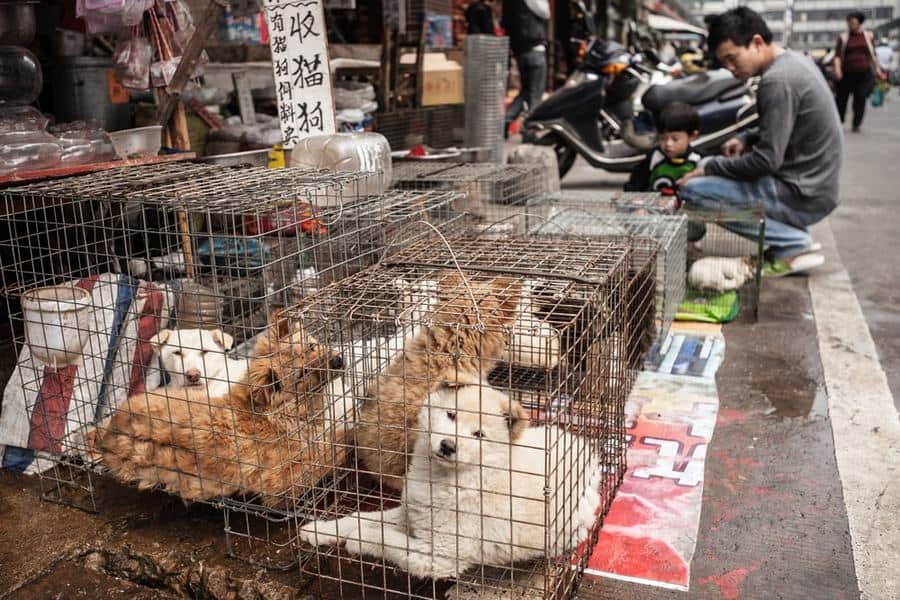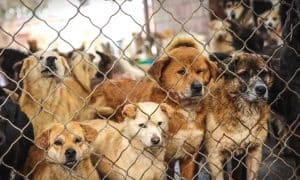“This post contains affiliate links, and I will be compensated if you make a purchase after clicking on my links.”
When the worldwide coronavirus and resulting COVID-19 pandemic was linked to wildlife meat market in Wuhan, Chinese authorities placed a strict ban on the farming and consumption of wild animals across the country.
Only one city, Shenzhen, took the initiative a step further by including dogs and cats in the prohibited animals list.

“Dogs and cats as pets have established a much closer relationship with humans than all other animals, and banning the consumption of dogs and cats and other pets is a common practice in developed countries and in Hong Kong and Taiwan,” the city government said in an order posted on Wednesday.
Animal advocates and health & safety officials alike have campaigned for many years to put an end to the often barbaric and cruel practice of culling, farming, slaughtering and consuming wild animals across many Asian countries. Sadly, it took a worldwide pandemic that has, so far, infected nearly one million humans and cost tens of thousands of lives, for real progress to be made.
While it remains unclear which wild animal passed the novel coronavirus to humans—bat, snake, and pangolin have all been suggested, but not confirmed—China has finally acknowledged a need to place better controls over meat sources to prevent another outbreak.
So far, only Shenzhen has included dogs and cats in their animal meat ban, with the ruling taking effect on May 1.
Humane Society International estimates around 30 million dogs slaughtered for meat across Asia each year, with about 10 million of those being killed in China alone.
“Shenzhen is the first city in the world to take the lessons learned from this pandemic seriously and make the changes needed to avoid another pandemic,” said Teresa M. Telecky, the vice president of the wildlife department for Humane Society International.
“Shenzhen’s bold steps to stop this trade and wildlife consumption is a model for governments around the world to emulate.”


















